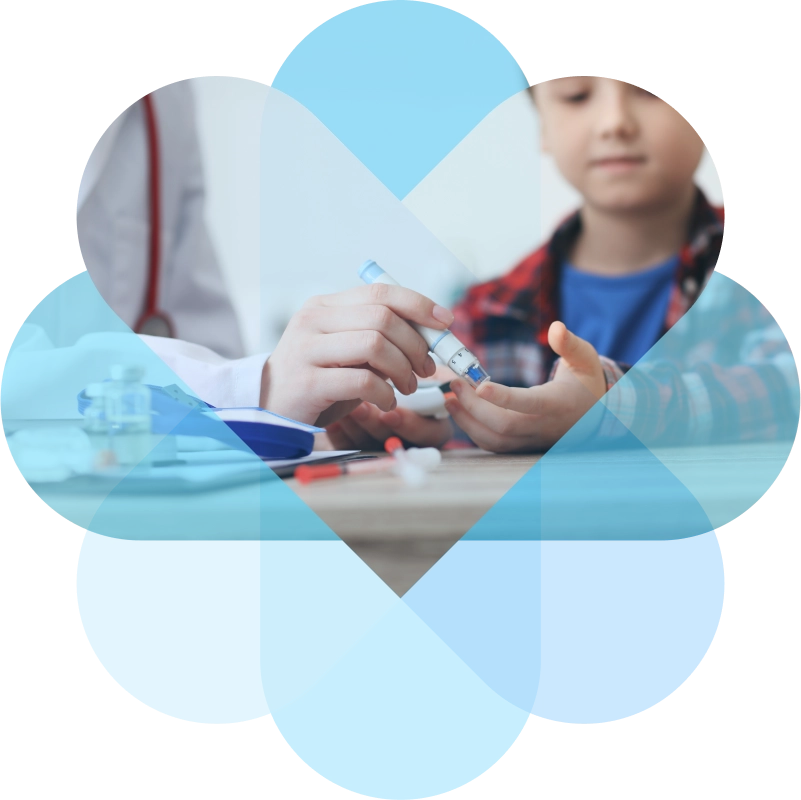DiSH-MT November Session:Sick Days, Ketones, and DKA

Overview
In this session, Dr. Nathan Bingham shared skills to assist and care for students with diabetes when they experience non-diabetes-related sicknesses. Dr. Bingham, a pediatric endocrinologist in Kalispell, shares tips that you can use to help students with diabetes prepare for getting sick and take care of themselves if they do become ill – including blood sugar management and identification of diabetes ketoacidosis.
Video Recap
Key Takeaways
Hyperglycemia (high blood sugars) doesn’t equal diabetic ketoacidosis (DKA). DKA is due to insulin deficiency. High blood sugars can be a sign of insulin deficiency, but high sugars themselves don’t cause DKA nor do they always mean DKA is developing. DKA can develop with on-target OR even low blood sugars.Check for ketones when there is an unexpected pattern of high blood sugars, nausea/vomiting, fever, or other illness signs. When a child has signs of ketone build-up, make sure they are getting insulin (e.g. pump is working) and they drink plenty of fluids (water if sugars are high, carb-containing if sugars are normal/low). Dehydration can worsen the acid build-up in DKAOptimize the ability of the student to remain a student in school when safe and reasonable. You can advocate with other school team members by including guidance in their school diabetes management planning documents.
What school health personnel should know when considering increasing care for students with diabetes?
Ketones should be checked when:
- Blood sugars are unexpectedly elevated
- During acute illness, infection, fever
- Symptoms (even if associated with.a routine illness)
- Nausea
- Vomiting or diarrhea
- Abdominal pain
- Rapid breathing
- Altered mental status
Ketones can be expected and may not always lead to a child being sent home from school under some circumstances: after fasting or with temporary underdosing of insulin as long as the child feels well, insulin is back in the system and the amount of ketones is DOWNtrending. When safe, and in conversation with the student’s family, the goal is to try to bring ketones back down and keep students in class. Remember SICK for the treatment of ketones:
S – Sugar: Check blood sugar every 2-3 hours or as necessary.
I – Insulin: Always take insulin. Not taking it could lead to DKA.
C – Carbs: Drink lots of fluids. If sugars are high, drink sugar-free fluids. If sugars are low, drink carb-containing fluids.
K – Ketones: Check ketones every 4 hours. Take rapid-acting insulin if ketones are present. May need more insulin than your typical dose.
Limit physical activity until ketones are downtrending.
If vomiting, headache, or lethargic, call parent/guardian and/or medical assistance immediately.
If ketones are present and the student is on an insulin pump, assume the insulin pump is not working correctly. In this case, change the pump site but continue to give blood sugar corrections via injection until ketones are small or trace.
Q&A Highlights
Ketones should start to downtrend after insulin is replenished. With urine ketone sticks, this takes time, as ketones collect in the urine in the bladder over time, and the bladder may still have ketone buildup from prior to insulin repletion. Over the next few times the student voids, however, ketones should be downtrending rather than uptrending. Staying hydrated also will help lead to more trips to the bathroom and give you an idea of urine ketone trends faster. Blood ketone meters are more expensive and sometimes but not always covered by insurance, but give a real-time blood result, so should start trending down within an hour or so of insulin repletion
Students should have a 504 plan or a diabetes management plan that outlines their diabetes management. These are great places to note the needed supplies for daily diabetes management at school (ketone strips/meter, insulin, pump or CGM supplies).
Additional Resources
December’s Session
Topic: Empowering Autonomy in Students – A Developmental Approach
